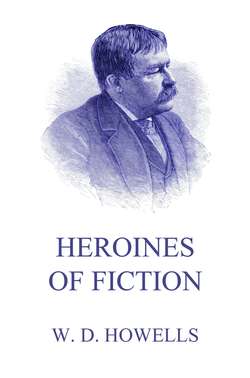Читать книгу Heroines Of Fiction - William Dean Howells - Страница 33
На сайте Литреса книга снята с продажи.
II
ОглавлениеLady Juliana is as amusingly a warning as Emma Castlemain in Mrs. Opie's "Temper'' is intolerably an example. Few young women in fiction have been so offensively good, have had so few moments of passive virtue in which the reader could cease longing for their extirpation. It would be almost as hard to match her for the complications of her origin and destiny. She advances through the story, with a cloud upon the question of her mother's marriage which is lifted just in season to prevent her own marriage with her half- brother; and all this in no obscure lands or times, but in England and France, at such a recent date that she narrowly misses seeing the First Consul review his troops before the Tuileries. A foreign sojourn and an atmosphere of contemporaneous history seem to be necessary, in the author's view, to the development of a heroine who might have shown herself a prig, alternately sentimental and sarcastic, in far less formidable circumstances; but it cannot be honestly said that the political actualities are entertainingly employed in the story of Emma's love-affairs. As far as this story is an illustration of the social spirit of the first decade of the century, it fails to convey any hint of that revolt which stirs in Jane Austen's novels. In "Temper" there are some wicked people of good birth; but all the contemptible people are middle class or lower class. People in trade, or rich from trade, are invariably vulgar, as they are in "Evelina" and "Camilla" and "Cecilia," and there is no recognition of snobbery, because for that time, at least, the author is a snob, as dear Fanny Burney was apparently at all times.
The story is worthwhile chiefly as an instance of the prevailing literary tendency. It bears, in motive and object, an allegiance to the great school of nature which had flourished from the time of Richardson, but it refuses the simpler means by which the lessons of this school were enforced. It seeks its effects by tremendous feats of invention, by mysterious and prodigious accidents; and in this it forecasts the later moods of romanticism even more than it reflects the wild necromancy of Mrs. Radcliffe. In fact, I find myself disposed, not too strangely, I hope, to justify that poor lady's art, so long mocked and rejected, as something quite consistent in itself, as against the decadent naturalism of Mrs. Opie.
